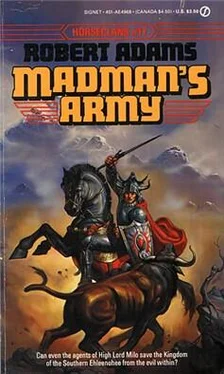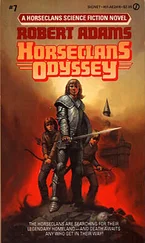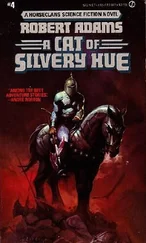“On my return from Portugal, Milo, my starting fleet of some fifty-three ships was storm-scattered, and only forty-one still were With me when we laid over, briefly, on the coast of New England. We were bound for the lands just north of the originally invaded area, but another terrible storm drove us into the southern end of the Bay of Chesapeake, and so we made our base among the shattered ruins of that huge complex of ancient cities and commenced to fan out south, west and north.
“However, after two signal defeats of my Mediterraneans in the north and northwest, I ordered that all expansion head south and southwest, directions in which the indigeneous resistance seemed both weaker and less well organized, while I took thirty-two ships and set sail for Portugal and more men.
“I arrived back at the Portuguese base to find that thousands more folk, both pirate-raiders and more peaceful ones, had come to the base just in time to swell the ranks of the defenders in a war against invading Spaniards from the southeast and swarms of sea-raiders sailing up from Morocco and other points along the west coast of Africa.
“Leaving my fleet and that of the base to combat the Moors, I led out the army and, after a lengthy campaign of maneuver, caught, cornered and virtually exterminated the Spaniards, for all that their force was larger and stronger than my own. My victorious forces came back just in time to meet and drive back into the sea an invading army of Moors whose fleet had cunningly led mine off on a wild goose chase and thus left the base vulnerable and thinly defended. The one fortunate result of all this was, however, that we managed to capture a good two-thirds of the Moors’ ships, more or less undamaged, so some ten months after I had returned to Portugal for the second time, I sailed back toward North America with almost a hundred ships.
“The Chesapeake base lay empty of life, and through the tales of the survivors, by then holding lands along the coast of what is now called Karaleenos, I learned that a huge, well-armed army had marched down from central Virginia to join with another army of indigenes in southern Virginia and move against the base, crushing it and slaying all who were unable to crowd aboard the few ships I had left behind.
“The hearing of these tales bred a rage of vengeance in the men I just had brought over the sea. Therefore, deciding that such combative rage should not be wasted, I once more passed over the more southerly lands and led all of my fleet and forces up the rivers and into the heart of the Commonwealth and Kingdom of Virginia.
“Milo, that was a long, grueling war, the conquest of Virginia. Yes, we had cannon, but then so, too, did they. As you no doubt recall, small arms had become very rare by then, repeating firearms almost nonexistent, because of the lack of self-contained cartridges. Most guns as did exist by then were flintlock-muzzle-loaders. The King of Virginia had a corps of two hundred gunmen, perhaps eight hundred bowmen and crossbowmen, a thousand horsemen—about half of whom had at least one flintlock horsepistol—and several thousands more infantry armed with pikes, spears, swords, poleaxes and suchlike. A strong army, well and innovatively led, good morale in the beginning, hard fighters, most of them. But we defeated them, in the end. We took very few male slaves, though, for those men were of the sort who will fight to the very death rather than surrender while still a drop of blood remains within their veins; you have to admire such men … but, also, you have to kill them, all of them, are you to retain that which you have won from them.
“As in all of the other lands we conquered, the few units that did run fled to the mountains or took refuge in states not yet conquered by our arms, to the north or the western parts of the south. Again leaving men employed at cleaning out pockets of resistance and otherwise consolidating their conquest, I took some ships and bore back to Europe for yet another wave of my new-style immigrants.
“The base in Portugal was filled to overflowing; so crowded was it become in the three years I had been absent that folk were living perforce in tents and hovels outside the walls on every hand or aboard ships in the harbor.
“The Turkish sultan, stung to the point of malicious rage by Greek coastal-raiding, had first taken most of the islands, one at the time, then had launched an invasion of the mainland of Greece itself, and refugees—whole families of them—were pouring into any place or land that might give them permission to make landfall.
“Aware as I was that, even by that time, the states that had been known collectively as New England still owned only sparse populations and so would likely not be long or difficult in the conquering, I assembled the leaders of the Greek horde and, after extolling the beauty and richness of the lands, put forth my plans for helping them acquire a new home over the sea. Their straits in Portugal were no less than desperate, and so I had no difficulty in filling all of my then-available ships with displaced Greek families.”
“Hmmph!” grunted Milo. “So that’s why Kehnooryos Mahkehdonya has not only a different culture but even a different dialect, a Greek purer than the tongues of all the other Ehleenohee-settled lands.
“Since you were mostly responsible for settling the distant ancestors of these Ehleenohee here, Clarence, do you have any sense of … say, paternity, of being pater familias toward these, their very distant descendants?”
Bookerman-Laskos smiled lazily. “Why, of course I do, Milo. Just which of your schemes are you trying to lure me into, eh?”
“Refill your goblet and I’ll tell you, Clarence,” Milo replied.
Perforce, the one time pirates of the Pirate Isles knew every inch of the still-sinking coastlines of the former kingdoms of Karaleenos and that now of the Consolidated Thoheekseeahnee in some detail, so locating safe anchorages in which to lie up and await the summons of the High Lord had presented no slightest difficulty to Lord Alexandros or any of the captains.
Referring to the maps and charts they and their predecessors had drawn over the recent years, they had decided in advance just how many of their ships each place could comfortably hold, assigned certain vessels to each of the ones farthest south, then worked out methods of staying in good contact, that none might be left behind when the time came to sail.
Of a day, a half-dozen of the long, low, lean raiders, lashed one to the other at port and stern boards, their masts all unstepped, were rocking gently in a sheltered cove well hidden behind treacherous shoals and a spit of swampy, much overgrown land, more than a fathom of brackish water beneath their keels and a steady Seabreeze sweeping most of the noxious insects inland, as well as helping to dispel the muggy heat.
Aboard the flagship, some seamen-raiders performed necessary cleaning and maintenance tasks—one detail being hard at work roving fresh ropes into the small but powerful catapult mounted just behind the fore-peak of the vessel, another using a small boat to ferry garbage and sewage ashore to be dumped for the delectation of the huge crocodilians and other, lesser scavengers, lest dumping it in the waters of the cove attract the unwelcome company of sharks. With a deafening din of metal on metal, a muscular smith worked at a small forge on deck, straightening blades of swords, cutlasses, boarding pikes and the like, restoring proper curve to the hooks of grapnels and boathooks and speedily fashioning odds and ends of needed hardware from bits of scrap metal.
Nearby to the smith, using the heat of his forge-fire to keep fluid a pot of reeking fishglue, a fletcher with a sack of feathers, a number of small and very sharp knives and a stack of dowels went about his task of feathering new shafts for arrow and hand-dart, ignoring the bright, hot sparks that often flew around him from the blows of the smith’s hammers. Within easy reach of the fishglue pot, a pointer fitted carefully chosen and smoothed sharks’ teeth of a range of sizes to the dart or arrow shafts; with practiced skill, he wrapped the threads of soaked sinew just tightly enough about shafts and glued heads to dry to optimum tightness without cracking or warping the wood. Those destined to become fire-arrows he mounted with minuscule chips of shark tooth sunk into tiny slits in the wood just behind the heads and secured them with droplets of the fishglue.
Читать дальше












